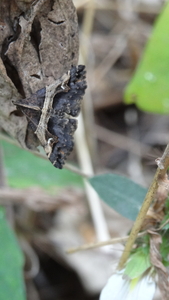| Bertula abjudicalis | |
|---|---|
 | |
| Scientific classification | |
| Domain: | Eukaryota |
| Kingdom: | Animalia |
| Phylum: | Arthropoda |
| Class: | Insecta |
| Order: | Lepidoptera |
| Superfamily: | Noctuoidea |
| Family: | Erebidae |
| Genus: | Bertula |
| Species: | B. abjudicalis |
| Binomial name | |
| Bertula abjudicalis (Walker, 1859) | |
| Synonyms | |
| |
Bertula abjudicalis is a moth of the family Noctuidae first described by Francis Walker in 1859. It is found in India, Thailand, Laos, Vietnam, Taiwan and from Sri Lanka to Australia, where it has been recorded from New South Wales. [1]
